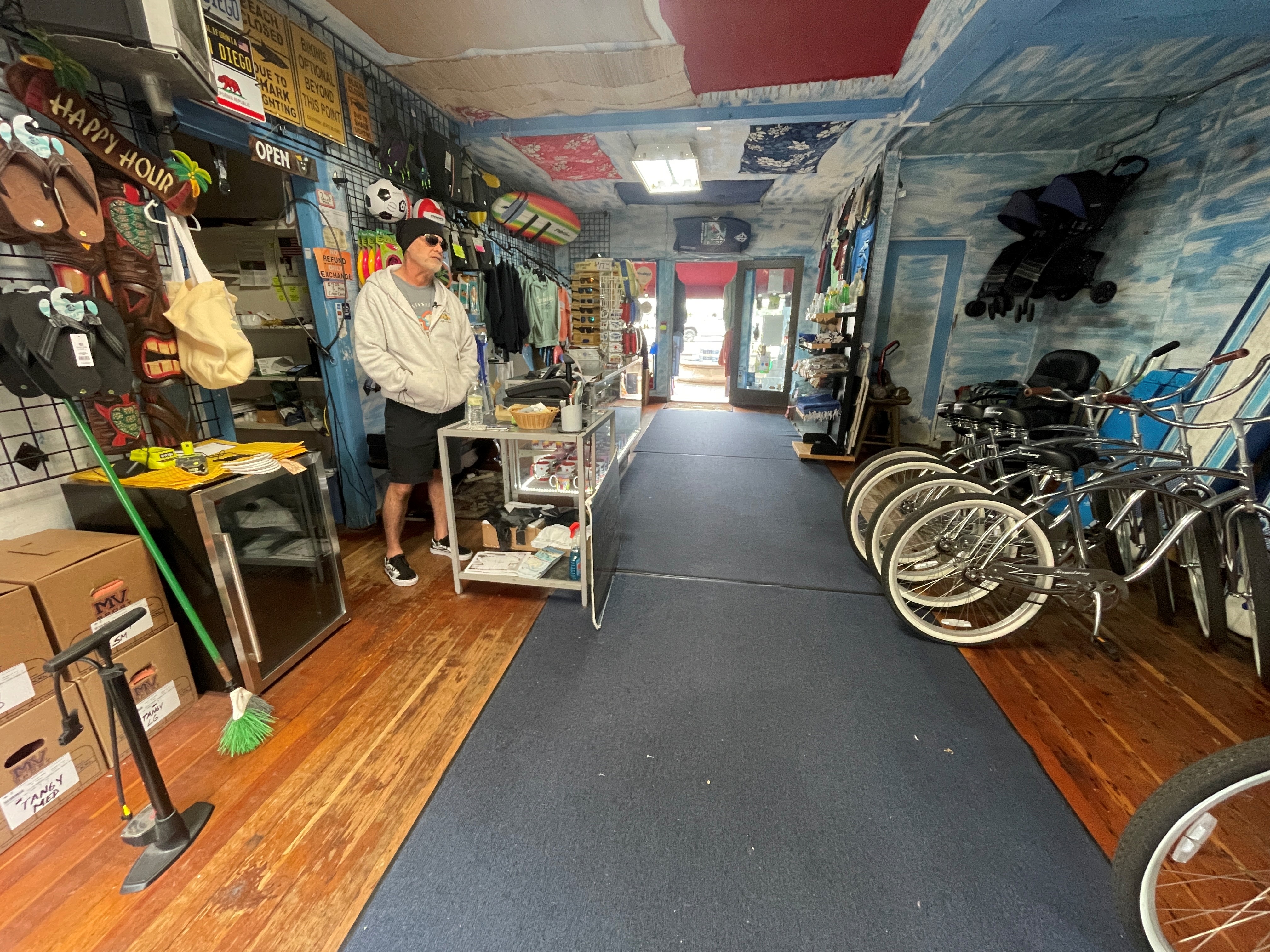Coastal residents are dealing with painful bites due to a surge in this type of mosquito. NBC 7’s Melissa Adan reports.
During warmer weather and high tides, San Diego County does experience an increase of mosquitos, but a specific type of mosquito is growing in population along North County coastal communities.
This is the black salt marsh mosquito, formally known as: aedes taeniorhynchus.
San Diego County Vector Control is responsible for mosquito abatement, by aerial and on the ground treatment. Vector control said they have noted the increase in these types of mosquitos.
“This mosquito makes its living by breeding in the salt water pools that are left behind after we get an excessive high tide like the king tide,” said Chris Conlan an ecologist with San Diego County Vector Control. “Once the water recedes it can leave pools of standing salt water and this mosquito can breed in those pools of salt water.”
The black salt marsh mosquito is causing painful bites and reactions from many North County residents.
One resident took to NextDoor to publish her open letter sent to the county about the pesky mosquitos.
In the letter Bettina Experton of Del Mar writes “some of my neighbors are suffering from significantly swollen and at times infected mosquito bites, and some elderly residents with chronic diseases are especially affected by the intensity of these mosquito bites, keeping them up at night and depriving them from needed sleep.”
Local
The county said they are aware of the many calls and complaints and are working on treating the areas. Last week, helicopters sprayed several area lagoons including San Elijo and San Dieguito. Another aerial larvicide application is scheduled for Sept. 19 and if necessary again on Oct. 10.
However, these efforts fall short for Experton.
“I am requesting further treatment with fogging of the affected areas to adequately treat the extensive adult mosquito infestation residents are suffering from, as larvicide applications will be insufficient to address this severe infestation,” she wrote.
Conlan said the salt marsh mosquitos are not transmitting illnesses.
“While they don't transmit any illness to humans in our area, they're very aggressive biters and they'll bite day and night so it can be quite annoying for the folks that live there,” he said.
Conlan said these mosquitos can also travel far distances.
“Unfortunately when it comes to salt march mosquitoes they do have a long flight range,” he said. “They're actually one of the longest flying mosquitos that we have, so even if you're several miles inland, six, seven, eight miles that’s still not too far away to be influenced by them.”
As far as catching diseases, Vector Control said San Diego County has not seen any local transmissions of Zika or Dengue with the mosquito.
According to vector control statistics, three mosquito batches have tested positive of West Nile Virus this year, including one batch from August in Lakeside and two batches from July in Santee.
“If people are experiencing mosquitos, they're certainly welcome to give us a call,” said Conlan. “If it’s something that requires our assistance, we're happy to send out an inspector and they'll take a look around the property and give some tips on how to best control mosquitos in your general.”
For more information on how to report a problem of mosquitos to the County visit their website here.



